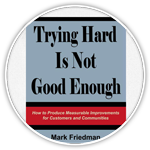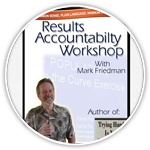The Working Bee.
Whian Whian is a very small rural community located approximately 25Kms from Lismore on the Far North Coast of NSW. The population would struggle to exceed 150 people. There is a very small primary school (16 kids) and a community hall across the road from the school that is managed by the community. The majority of the residents are “Sea Changers” who moved up here from one of our major cities 20 to 25 years ago. Most people live on blocks of 20 to 35 acres and try to do things like grow macadamias or avocados or mangoes or vegies. Most people have to supplement their incomes with work outside either in Lismore or one of the other larger towns in the area. There are few of the older “locals” (those that were born and bred there) about but they are a dying breed. Most have to move out because they cannot work their places any longer.
The community is very diverse politically and socially but we all get on. The school (parents and citizens group) and the hall committee share the work of organising things (fund raisers working bees for maintenance). Every year the school has their end of year presentations and Christmas party in the hall. There is a Santa every year. The Santa suit is over 70 years old and is maintained by loving hands. The kids sing a particular carol and Santa turns up. Just before he enters the hall parents and young people who have grown old enough to “know” about Santa sneak out of the hall and throw stones from the road on the roof to simulate the reindeer landing on the roof. It is wonderful to see the young people assuming this mantle and to see the look on their faces as they achieve this status.
Some 18 years ago I got this idea that it would be good to set up a regular Working Bee amongst a group of like minded people. The idea came from the realisation that there were some jobs on my place that I could not do alone and that was probably beyond my partner as well. I knew that my neighbours had the same experience. I started talking about this when ever there was a community activity (family fun nights, parties, working bees at the hall or Christmas parties). After about 18 months my neighbour said “for Christ sake Lionel lets stop talking about this and do it. We’ll have a meeting at my place next Sunday”. I told as many of the residents as possible (the selling point was… “You get all the jobs done that you don’t want to do yourself (lantana cutting, weed pulling etc), all the jobs you can’t do by yourself and all those other things that you can’t think of straight away”). The meeting was held and Seven groups turned up (a group represents a family unit or a property). We discussed what rules we would have: We decided not to bother with insurance as it was too complicated and we agreed that no one could be expected to do something that they did not know how to do or that they did not want to do. We also agreed that no one would use chemicals unless they were happy to do so. For the group whose working bee it would be they had to tell everyone what tools to bring. Some of us have tractors; we agreed that if we were asked to bring these that the host would pay for diesel. We agreed If someone could not come to the next working bee that they could make alternative arrangements to attend on another day or the nominated host could be absent at their working bee. The irony is that this is never a problem as we are all pretty forgiving and laid back and anyway we like coming to the working bee.
The meeting finished with the seven agreeing to commit to giving up 1 Sunday per month to attending a Working Bee at the nominated groups place. The order of groups was decided by placing everyone’s name in a hat and drawing out names successively. That order had been maintained ever since. After the first year we had a meeting at the last Working Bee to review how things were going. We were all very committed to the process as we all had got so much out of it. To quote… “You get all those jobs done at your place that make life a drag. You get ideas and inspiration from other peoples working bee cause they do things differently and then there is the social element”. We decided to reduce the working Bee to half a day as we all agreed that working on someone else’s place for a day totally knackers you for the next day and a lot of us work off farm. And so that how it goes. During the last 18 years 2 of the original members dropped out (one because they wanted to do non working cosmic things like drumming and we were not into that and the other because they got pissed of about a speed bump that was put in at the school and they felt that some of the working bee were a part of the speed bump thing). We have recruited an additional 4 groups in that time to replace losses and expand to the optimum number (9).
To summarise… The Working Bee is made up of between 7 (minimum) and 9 (maximum) members who commit to giving the nominated party ½ a days work once a month. The nominated Host party is required to tell the members the date of the next Working Bee at the preceding Working Bee (the order of whose turn it is is decided when the Working Bee is established). The host is required also to tell members what tools to bring and what jobs will be done (this is in the interests of the host because if they plan and organise well they get an awful amount of work done). No one is asked to use chemicals unless they are happy to do so. No one has to do a job they can’t do or don’t want to do. Members are expected to turn up between 8:00am and 8:30am. Work starts at 8:30 and finishes at about 12:00 to 12”30. There is morning tea at about 10:15. All members of each family group are encouraged to attend. Children/Kids are welcomed as it gives them an idea of what a community can achieve.
This means that each member gets a working bee at least once a year. If there are 9 groups the three spare months are covered by school holidays, Christmas and rain or excessively hot periods. Everyone gets a win win.
Cheers Lionel
Written by:
Lionel Adams-Acton
427 Whian Whian Rd
Whian Whian. NSW 2480
Ph 02 66895431
Email: dirkgently@nor.com.au



